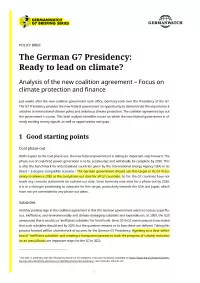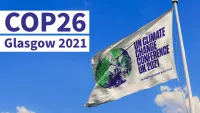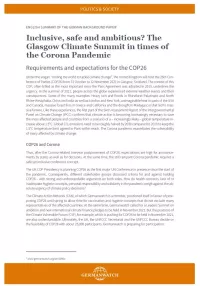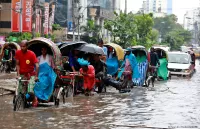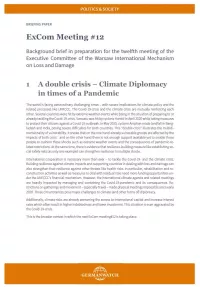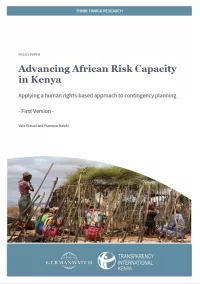Aktuelles zum Thema
The climate lawsuit of the Peruvian Andean farmer and mountain guide Saúl Luciano Lliuya against the energy company RWE has entered the decisive phase six and a half years after the lawsuit was filed: After a long delay, especially due to the Corona pandemic, a site visit took place this week in the Andean city of Huaraz. Judges of the Higher Regional Court (OLG) of Hamm (Germany), legal advisors and experts travelled to Peru to examine whether the plaintiff's house is threatened by a possible flood wave from the glacier lake Palcacocha above the city. The entire danger zone in Huaraz actually covers an area where around 50,000 people live.
Climate change is already a reality. At the same time, there is a gap regarding measures to manage climate risks and impacts in vulnerable developing countries. This study analyses existing and planned financial instruments and mechanisms in countries of the Climate Vulnerable Forum (CVF). Based on six key findings, a set of conclusions on knowledge gaps and open research questions, the necessary support from the international community as well as strenghened cooperation through partnerships are presented.
The Coronavirus pandemic has delayed the collection of evidence in the trial between the Peruvian farmer Saúl Luciano Lliuya and the German utility RWE at the Upper State Court in Hamm (Germany). Nevertheless, a new scientific study is providing credence to the legal claim: a prestigious team of researchers has used climate models to demonstrate that the risk of glacial lake flooding affecting the city of Huaraz is almost entirely due to anthropogenic climate change.
The Briefing Paper on the 12th meeting of the Executive Committee (ExCom) of the Warsaw International Mechanism on Loss and Damage from 12-16th October 2020 is mainly directed at persons interested in the discussions on Loss and Damage within the UNFCCC process.
The meeting will take place in the middle of the Covid-19-crisis that comes across with severe challenges for vulnerable groups but also in regards of keeping up climate diplomacy.
African Risk Capacity (ARC) is a specialised agency that follows the vision of: “protect the livelihoods of vulnerable people in Africa against the impact of natural disasters through home-grown, innovative, cost-effective, timely and sustainable solutions.” As a regional, African-owned, and African Union (AU)-led insurance pool, ARC is an essential component of a more comprehensive approach to anticipatory climate risk management. It covers the issues of financial risk management through risk pooling and transfer. Contingency planning is a central part of ARC insurance, and a precondition to purchasing a policy. The specific advantage of an ex-ante mechanism such as this is its fast availability of support; thus, it help avert suffering.



